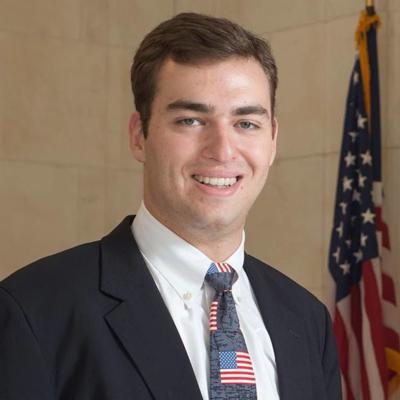By Samuel Moore-Sobel
This may be the year of unconventional presidential campaign announcements.
“I am running for President of the United States,” California Senator Kamala Harris announced on Good Morning America. New York Senator Kirsten Gillibrand made her own declaration on The Late Show with Stephen Colbert. Former Texas senatorial candidate Beto O’Rourke even live-streamed a visit to the dentist, although he stopped short of announcing a presidential bid. Possibly the tools in his mouth prevented him from getting the words out. Perhaps motivated by a need to stand out in what is to likely be a crowded Democratic primary, candidates are lining up to grab the microphone before it is snatched from their hands.
Such a strategy is hardly new. In 1992, then-candidate Bill Clinton made an appearance on the Arsenio Hall Show. He famously played the saxophone, charming voters with his seeming relatability and just a little bit of cool. In 2002, then-Senator John Kerry went on Meet the Press to announce his intention to form an exploratory committee. However, the uptick in unconventional announcements is inarguable, and may represent a change in course. Perhaps holding a large campaign rally and giving a long announcement speech, filled with lofty and uplifting rhetoric, is a thing of the past. Will this lead to the election of better candidates?
“We have been electing magic ponies in our presidential contests,” wrote Wall Street Journal columnist Peggy Noonan. “And we have done this while slighting qualities like experience, hard and concrete political accomplishment, even personal maturity.”
This drive to elect an empathetic candidate, the type we can envision ourselves “having a beer with,” is a driving force in modern presidential campaigns. How a candidate appears on television, the level of charisma with which they shower upon audiences. All of these elements help form how we view a candidate, help inform which lever we will pull when we find ourselves in a ballot box come November 2020.
Yet I worry that such a desire obfuscates the reason to support a candidacy. Does our system of modern campaigning at the highest levels have the effect of discouraging level-headed and substantive individuals from jumping into the fray? While charisma and likeability play a role in any job interview or social interaction, this is simply one part of the equation. Isn’t it time for a return to more substantive policy debates, instead of a prevalence for distilling a candidate to a handful of sound bites? Regardless of party affiliation, most can likely agree our country is at a crossroads. Instead of choosing the most likeable, shouldn’t we be choosing the most qualified?
While charisma and charm can be alluring, the reality is that these qualities alone fail to make a great President. So much more is required by both the people and the office. A strong intellect, a strain of compassion, moral backbone, a good temperament, a willingness to compromise when necessary and a proven desire to stand firm when the moment demands strength. A desire to serve all the people, not just those they find in lockstep agreement with their espoused ideology. We need a man or woman with a combination of qualities, willing to make hard decisions and take on the most complicated issues facing our nation.
The office requires a sense of decorum and respectability. An occupant high-minded enough to engage with those on the opposite side of the aisle, while urging Americans to both consider and embody the very highest ideals of this great nation. We need an individual who brings out the best in us, not the worst. A visionary, one who can see things we cannot see; and, do the things we cannot do.
“…A candidate now is a mood,” Noonan wrote recently. “Not a thought, a stand or a statement, but a mood.” A dangerous state of affairs. After all, moods come and go. They change based on the wind. A person’s efficacy for office should not be judged on the basis of the current mood of the country. There has to be a standard by which we judge our candidates, one that transcends our current cultural predilections or flavor of the day. As Americans, we should require more from our candidates running for office.
After all, when you look at the current crop of both declared and undeclared candidates, do you see the makings of a President?
Samuel Moore-Sobel is a freelance writer. To read more of his work, visit www.holdingontohopetoday.com.

